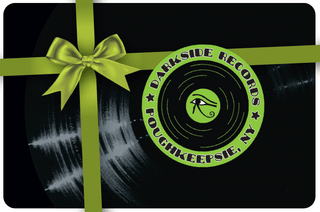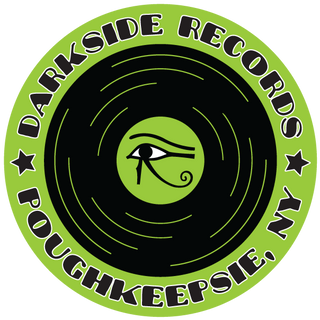Quartetto Nous- Shostakovich: String Quartets, Vol. 3

With this latest volume in their ongoing cycle, recorded in 2023, the Quartetto Nous passes the halfway mark of Shostakovich's 15 quartets. The previous instalments have been recognised and praised for their full-blooded intensity and uncompromising address to the detail of these absorbing scores. The present album returns almost to the start of Shostakovich's quartet cycle, with a piece which he claimed (perhaps as a joke) he had originally written as his Second Quartet, before adding a piano part to make it a Piano Quintet with which he could tour and earn much-needed income. At any rate, the Piano Quintet took shape in 1940 and soon became one of his most popular pieces of chamber music: less radical in form and harmony than most of his quartet writing, more extrovert in mood, and more approachable. The Second Quartet proper was composed in 1944, soon after the Leningrad Symphony which had won the composer international celebrity. Yet the two works exemplify the contrast in style between Shostakovich's 'public' and 'private' works. The Waltz of the Second Quartet is one of the most extraordinary examples of his ability to transform instrumental writing into a kind of nightmare factory. Having begun in a determined A major, the Quartet closes in a much more equivocal minor. The Fourth Quartet of 1949 likewise sets out in an almost folksy D major, working in elements of Yiddish melodies, and it's skies gradually cloud over during the four movements, until the sadness of the second movement and the vitality of the third fuse to produce the violent, wailing and screaming tones of a danse macabre in the complex finale. By the time of the Sixth Quartet, written in 1955, Shostakovich had become a practised exponent of double-edged rhetoric, of music which wears a happy face while twisting it's hands in anxiety or even agony. The serene light of G major bathes the initial Allegretto, but there are signs of grief, perhaps occasioned by the recent death of his wife Nina, scattered throughout the composition. The Quartetto Nous (from the Greek: intellect, mind, but also inspiration, creative capacity), has established itself among the most interesting musical Italian ensembles of it's generation, giving captivating interpretations in which the Italian tradition of string-playing merges with other significant European schools such as the Musik Akademie in Basel (where they studied with Rainer Schmidt of the Hagen Quartett), and the Accademia Chigiana in Siena (Gunter Pichler of the Alban Berg Quartett). Winner, among other awards, of the Farulli Prize in the Abbiati competition, the most prestigious award of Italian music criticism, the Quartetto Nous demonstrate their individual approach to music spanning the quartet repertoire, and in ambitious contexts such as playing from memory and totally in the dark. - The new installment of the complete String Quartets by Shostakovich played by Quartetto Nous brings together the quartets 2, 4 and 6, as well as the impressive and moving piano quintet. - Dmitri Shostakovich (1906-1975) is without doubt one of the most famous and influential composers of 20th century Russia. He lived in a time of Soviet repression and, though outwardly a loyal communist, he resented the restrictions imposed by the regime on his creativity. This led to a fascinating duality between conformism and the expression of his most innermost feelings, fears and anger. - Shostakovich's 15 String Quartets form an impressive body which follows the development of his style throughout his life. They are the testimony of a tortured soul struggling to remain true to himself, expressed in anguish and bleakness, but also in serenity and bliss. - Quartetto Nous, formed in 2011, has established itself in a short time as one of the most interesting chamber music ensembles of it's generation. It's immersive performances are the result of a professional training where the Italian tradition and the most influential European schools are combined. The quartet studied with the Quartetto di Cremona at the Accademia Walter Stauffer in Cremona, at the Basel Musik Akademie with Rainer Schmidt (Hagen Quartet), at the Escuela Superior de Música 'Reina Sofia' in Madrid and at the Accademia Musicale Chigiana in Siena with Gunter Pichler (Alban Berg Quartet) and at the Lubeck Musikhochschule with Heime Muller (Artemis Quartet). - The first volume of the Shostakovich Quartets by Quartetto Nous for Brilliant Classics was hailed enthusiastically by the press. Musicweb writes:" This is one of the best as it left me in awe of the breadth as well as the intensity of Shostakovich's genius, RECORDING OF THE MONTH".
With this latest volume in their ongoing cycle, recorded in 2023, the Quartetto Nous passes the halfway mark of Shostakovich's 15 quartets. The previous instalments have been recognised and praised for their full-blooded intensity and uncompromising address to the detail of these absorbing scores. The present album returns almost to the start of Shostakovich's quartet cycle, with a piece which he claimed (perhaps as a joke) he had originally written as his Second Quartet, before adding a piano part to make it a Piano Quintet with which he could tour and earn much-needed income. At any rate, the Piano Quintet took shape in 1940 and soon became one of his most popular pieces of chamber music: less radical in form and harmony than most of his quartet writing, more extrovert in mood, and more approachable. The Second Quartet proper was composed in 1944, soon after the Leningrad Symphony which had won the composer international celebrity. Yet the two works exemplify the contrast in style between Shostakovich's 'public' and 'private' works. The Waltz of the Second Quartet is one of the most extraordinary examples of his ability to transform instrumental writing into a kind of nightmare factory. Having begun in a determined A major, the Quartet closes in a much more equivocal minor. The Fourth Quartet of 1949 likewise sets out in an almost folksy D major, working in elements of Yiddish melodies, and it's skies gradually cloud over during the four movements, until the sadness of the second movement and the vitality of the third fuse to produce the violent, wailing and screaming tones of a danse macabre in the complex finale. By the time of the Sixth Quartet, written in 1955, Shostakovich had become a practised exponent of double-edged rhetoric, of music which wears a happy face while twisting it's hands in anxiety or even agony. The serene light of G major bathes the initial Allegretto, but there are signs of grief, perhaps occasioned by the recent death of his wife Nina, scattered throughout the composition. The Quartetto Nous (from the Greek: intellect, mind, but also inspiration, creative capacity), has established itself among the most interesting musical Italian ensembles of it's generation, giving captivating interpretations in which the Italian tradition of string-playing merges with other significant European schools such as the Musik Akademie in Basel (where they studied with Rainer Schmidt of the Hagen Quartett), and the Accademia Chigiana in Siena (Gunter Pichler of the Alban Berg Quartett). Winner, among other awards, of the Farulli Prize in the Abbiati competition, the most prestigious award of Italian music criticism, the Quartetto Nous demonstrate their individual approach to music spanning the quartet repertoire, and in ambitious contexts such as playing from memory and totally in the dark. - The new installment of the complete String Quartets by Shostakovich played by Quartetto Nous brings together the quartets 2, 4 and 6, as well as the impressive and moving piano quintet. - Dmitri Shostakovich (1906-1975) is without doubt one of the most famous and influential composers of 20th century Russia. He lived in a time of Soviet repression and, though outwardly a loyal communist, he resented the restrictions imposed by the regime on his creativity. This led to a fascinating duality between conformism and the expression of his most innermost feelings, fears and anger. - Shostakovich's 15 String Quartets form an impressive body which follows the development of his style throughout his life. They are the testimony of a tortured soul struggling to remain true to himself, expressed in anguish and bleakness, but also in serenity and bliss. - Quartetto Nous, formed in 2011, has established itself in a short time as one of the most interesting chamber music ensembles of it's generation. It's immersive performances are the result of a professional training where the Italian tradition and the most influential European schools are combined. The quartet studied with the Quartetto di Cremona at the Accademia Walter Stauffer in Cremona, at the Basel Musik Akademie with Rainer Schmidt (Hagen Quartet), at the Escuela Superior de Música 'Reina Sofia' in Madrid and at the Accademia Musicale Chigiana in Siena with Gunter Pichler (Alban Berg Quartet) and at the Lubeck Musikhochschule with Heime Muller (Artemis Quartet). - The first volume of the Shostakovich Quartets by Quartetto Nous for Brilliant Classics was hailed enthusiastically by the press. Musicweb writes:" This is one of the best as it left me in awe of the breadth as well as the intensity of Shostakovich's genius, RECORDING OF THE MONTH".





